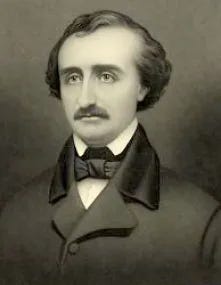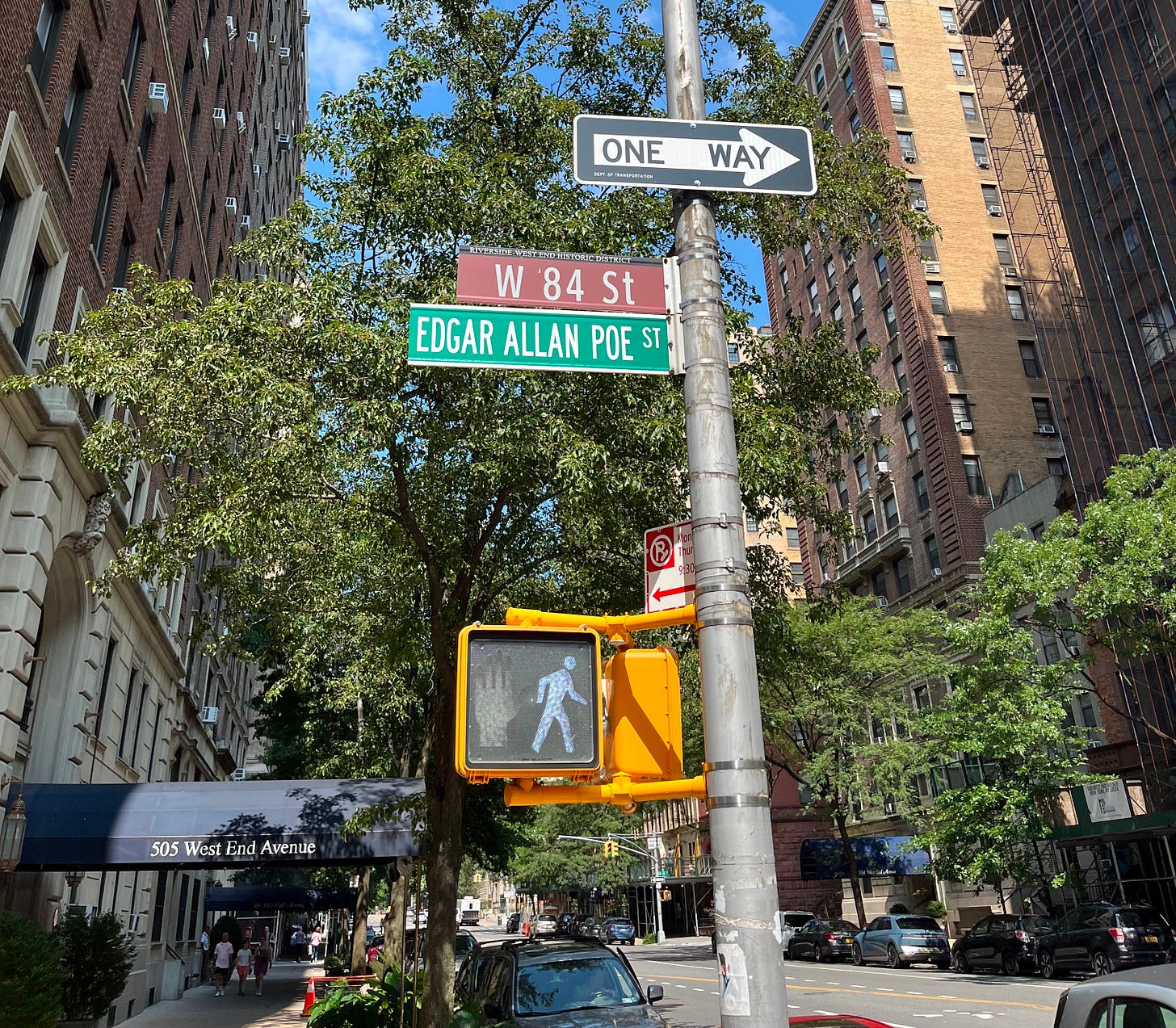The Army Nevermore
Edgar Allan Poe and the Army
Prior to Netflix’s 2022 film The Pale Blue Eye, it was unlikely many people associated Edgar Allan Poe with West Point. Yet not only did the poet and author attend the Academy, he had previously served as an enlisted soldier and noncommissioned officer in the Army. Poe’s service, both in the Army and at West Point, influenced his later work.
This history is a little less surprising to anyone who has spent time at West Point during the dead of winter. Poe’s opening line to The Raven, “Once upon a midnight dreary, while I pondered, weak and weary…” could describe many nights generations of cadets have experienced as they struggled with the Academy’s demanding schedule and felt the blistering cold winds off the Hudson. West Point’s gothic architecture also makes it a fitting setting to imagine Poe developing his craft.
Edgar Allan Poe. Source: National Archives.
While Poe’s time at West Point was brief—he was court-martialed and discharged about seven months after starting at the Academy—he has had a lasting impact on America and the world. In order to help bring Poe’s relationship to the Army to life, I reached out to the great team at the Poe Museum. The Poe Museum is located at the Old Stone House in Richmond, Virginia, where Poe once stood guard for the Marquis de Lafayette on his 1824-1825 farewell tour; the same tour we highlighted three weeks ago in Army 250. Maeve Jones, the Executive Director, and Emma Clark, the Education Manager, were kind enough to respond to a set of questions about Poe and the Army.
Edgar Allan Poe served both as an enlisted soldier in the U.S. Army and, briefly, as a cadet at West Point. Do we know why Poe joined the Army?
Edgar Allan Poe experienced what many would consider an unstable childhood. As an infant his father abandoned him. At the age of two his mother passed away of tuberculosis. At the age of three, Poe was taken in by a foster family, the Allans. While Poe experienced a wealthy upbringing living with his new foster family, his relationship with his foster father was poor. The two quarreled constantly, leading Allan to never officially adopt Edgar into his family. As Poe grew older his misfortunes continued. He dropped out of the University of Virginia and discovered his fiancee, Elmira Royster, had married another man. With not much keeping him in Richmond, Poe decided to head to Boston to launch his literary career. In Boston Poe registered to serve in the Army in the First Regiment of Artillery under the name "Edgar Perry." While we don't know the exact reason Poe served, it seems it was likely an attempt to escape his upbringing. Poe served at Fort Independence, Fort Moultrie, and Fort Monroe rising to the rank of Sergeant Major. After two years of service, Poe found a substitute to replace him while he attended West Point Academy.
How do you think Poe's time in the Army influenced his writing? Does he make explicit reference to his service?
There are few direct references to Poe's military service in his literature. "The Gold Bug," for example, is set on Sullivan's Island in Charleston, South Carolina where Fort Moultrie is located. Additionally, General Winfield Scott, who gave Poe a recommendation for admittance to West Point, is like the inspiration for Poe's war hero character John A. B. C. Smith. There is one surviving poem of Poe's that exists from his time as a West Point cadet on his supervisor Joe Locke.
"John Locke was a notable name;
Joe Locke is a greater: in short,
The former was well known to fame,
But the latter’s well known “to report.”Why do you feel Americans should learn more about Edgar Allan Poe? What is the mission of your museum? Who do you work with?
The Poe Museum's mission is "Illuminating Poe for everyone, evermore." Poe's legacy extends to everyone across space and time. While Poe is most well-known as the "Master of the Macabre," in reference to his acclaimed gothic literature, he is also remembered today as a leading figure in the science fiction genre and the father of the modern detective story. His over 100 literary works have influenced writers such as Sir Arthur Conan Doyle, Jules Verne, Steven King, and Agatha Christie, directors like Alfred Hitchcock and Tim Burton, and artists like Salvador Dali. Even for those who aren't fans of Poe's works, his influence has spread across a majority of the media we consume today. And for that reason, we believe Poe's legacy will continue for centuries.
What's your favorite fact or story about Poe?
As a West Point cadet, Poe was well known around campus for his humorous poetry which often poked fun at his supervisors. When Poe planned to publish some of his poetry as a cadet, several of his fellow classmates pitched in to pay for the book's printing. However, these cadets, who were expecting more humorous verses, were disappointed to find a collection of melancholy poetry including "Lenore" and "The Sleeper." In our collection, we have a copy of Poe's published work owned by one of his former classmates who inscribed on a page "This book is a damn cheat. / All that fills 124 pages could have been compiled in 35."
Is there anything else you'd like the Army 250 community to know about Poe? About the museum?
The Poe Museum offers several free resources for students and teachers. From free family days to downloadable activities, the Poe Museum is committed to providing accessible resources to all. For more information on our education resources, check out our programing page on our website. https://poemuseum.org/education-programs-at-the-poe-museum/
Edgar Allan Poe is among the most influential authors in American history. His impact continues to be felt in the literary and artistic world, and as The Pale Blue Eye demonstrated, Poe continues to captivate, inspire, and more than occasionally, terrify. His legacy will live on, anchored in everything from New York City streets that bear his name (shown below) to the mascot of the professional football team, the Baltimore Ravens, whose name is“Poe”.
Embedded as part of this legacy is the Army. So the next time you open up one of Poe’s stories, or take in a Tim Burton film or read something by Steven King, in some small but meaningful way, the Army’s story is part of that experience.
Source: Author’s photo.
Additional Resources:
I recommend you check out the Poe Museum online here and if possible, visit the Museum in Virginia.
The West Point Library has a short video about Cadet Poe here.
Be Part of Army 250
If you’d like to write a newsletter post, share an educational resource about the Army, or lift up an opportunity for people to connect with the Army (e.g., an event, story, etc.), please contact Dan (dan@army250.us).





Dan- I love this deconstruction on Poe’s legacy. Most notably: his ability to cross the gothic and sci-fi genre. Always interesting to see how authors get credited and known only for one thing when they are actually much more agile. A brilliantly insightful piece!